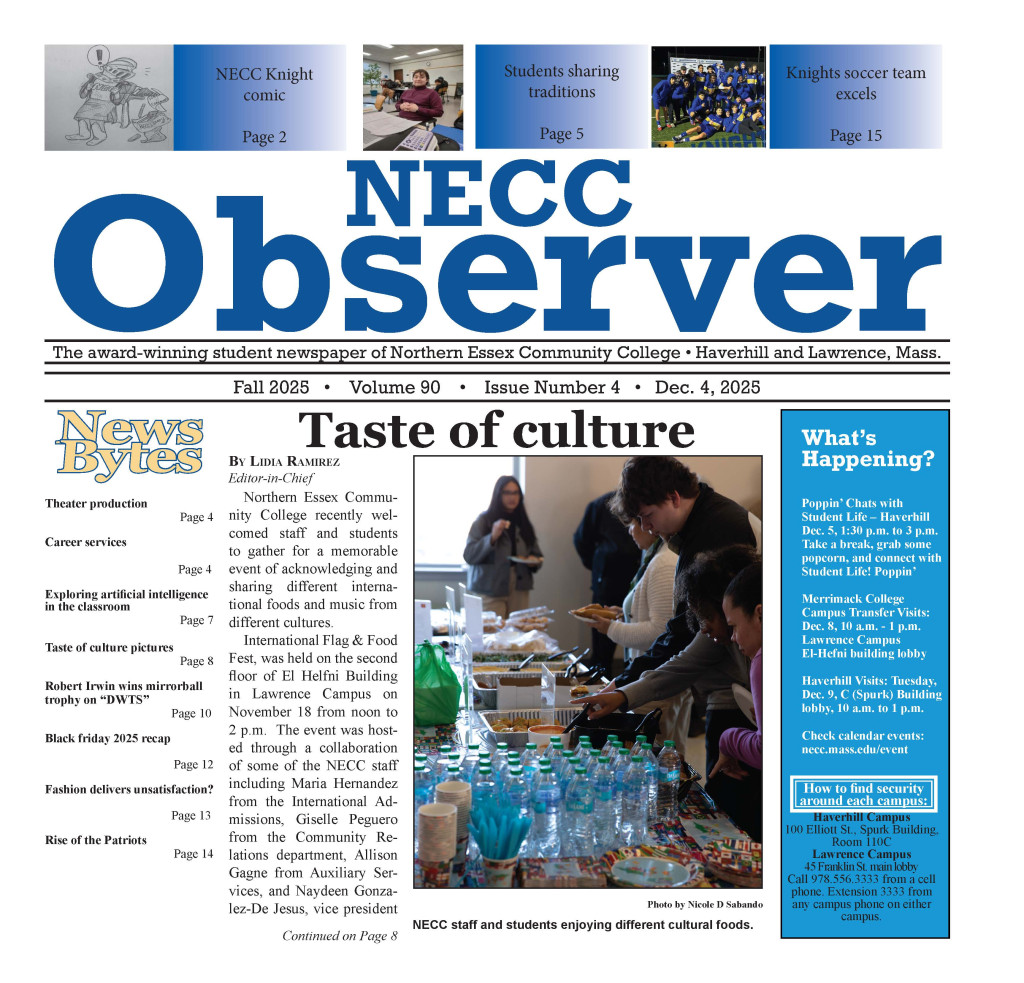While many enjoy the skiing weather that winter in New England brings, many others suffer to get the motivation to go about their regular daily routines. This “seasonal slump” is especially prevalent in students. With the confinement indoors due to the cold weather, excitement of the holidays in the past, shorter days, and now COVID restrictions, many people start to lose energy and become sluggish and less motivated. However, there are many strategies people use to help them get out of this funk, such as finding activities to focus their energy, embracing the cold weather and more.
Starting a new semester in the middle of winter can be difficult. One is not yet in the habit of completing their school work, and it is hard to step back and take a break when the weather outside makes it difficult to get fresh air.
Emily Graves, a Northern Essex Community College (NECC) student, stated, “ It’s hard to go out and be active when it is so cold, and it forces me to be inside more and leaves me with less to do and more to think about.”
Due to this, motivation can slip and it can feel hard to catch back up.
Another NECC student, Cassidy Smith, said, “The weather literally makes me depressed. I have little to no motivation to do anything, and the cold with the gray skies amplify that feeling.”
The gloomy feeling outside the window can mirror in one’s moods and make it challenging to drive oneself to complete the countless assignments due.
These seasonal mood plunges have fallen even deeper in the past two years due to COVID. Not only are people staying inside to avoid the cold, but they are even further isolated due to the virus.
Graves stated, “I definitely think that COVID-19 has impacted the magnitude of the seasonal slump,” she added, “it’s hard enough doing things when it’s winter out, but the pandemic has only elevated that.”
The pandemic can also fuel more stress during this fragile time. Not only are many students wondering if winter will ever end, but they have also been asking the same question about COVID for the past two years.
This lack of a “light at the end of the tunnel” can result in a feeling of defeat.
However, one does not have to allow this funk to control them.
There are many strategies to bring energy and excitement back to one’s life.
Avery Hochheiser, another student at NECC, says, “I like to embrace the cold. Dress cozy and drink hot drinks.” Get a change in scenery and maybe visit a coffee shop to study instead of sitting at a desk in one’s bedroom. Just because it is cold out doesn’t mean it still can’t be fun. Cuddling up in a cozy sweater may not be the same thing as laying out in the sun, but it can offer a different kind of happiness that summer can’t provide.
Focusing on the positives and what you can do can help pull one out of a negative mindset. Graves said she liked to do activities that made her forget how dreary it could be outside. Some of her examples included “painting, listening to music, baking and cooking.”
Smith also agreed that listening to happy music or music that reminded her of summer helped her enter a more positive mindset.
Some other tricks and tips include moving your desk towards a window to increase exposure to sunlight, staying active, getting enough sleep, and not pushing oneself too hard. It is a difficult time of the year, regardless of COVID, so knowing limits helps to determine what one can and cannot handle. These strategies can aid in getting through these four to five more weeks of winter until spring comes to melt the snow and lift everyone’s “seasonal slumps.”

